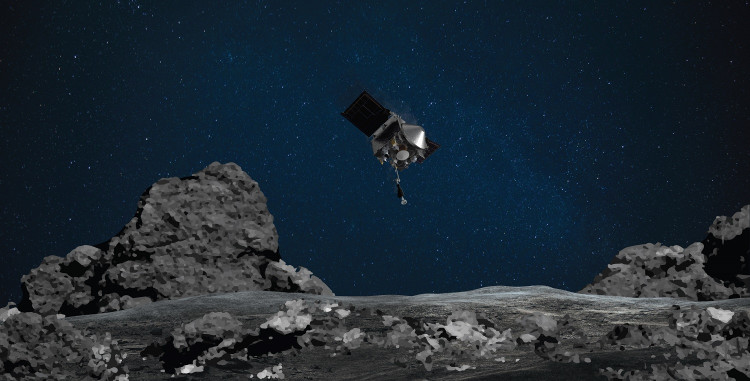NASA is ready to give its Lucy mission a headstart to fly by eight asteroids, providing scientists with the first close-up observations of them.
Lucy is set to launch on Oct. 16 atop a United Launch Alliance Atlas V rocket from Florida's Cape Canaveral Space Force Station. The launch will mark the beginning of a historic mission in which Lucy will get up close and personal with eight different space rocks over the next dozen years.
"We're visiting more asteroids than any other spacecraft in history," Lucy principal investigator Hal Levison, of the Southwest Research Institute (SwRI) in Boulder, Colorado, said during a news conference on Tuesday.
"We're also going to exceed another [record]: We're going farther from the sun than any other solar-powered spacecraft in history," Levison added.
Trojan asteroids, space rocks that circle around the sun in Jupiter's orbit, are Lucy's primary science targets. One group of Trojans "leads" Jupiter around our star, while the other "trails" the gigantic planet.
To date, astronomers have identified about 7,000 Trojans, but Levison believes the total number of the space rocks is substantially larger, maybe rivaling that of the main asteroid belt between Mars and Jupiter.
To establish the nature of the asteroids' surface components, Lucy will utilize three science instruments, including color and black-and-white cameras, a thermometer, and an infrared imaging spectrometer. The spacecraft's antenna will be used to communicate with Earth, as well as to help determine the masses of asteroids.
After the Lucy mission is completed, the spacecraft will be in a stable orbit that retraces its exploration course between Earth and Jupiter, with no possibility of colliding with either for over 100,000 years. If the orbit becomes unstable, it will most likely be sent on a disastrous voyage to the sun or expelled from our solar system.
However, a potential government shutdown looms over all of these preparations: federal government funding will expire on Thursday (Sept. 30) unless politicians on Capitol Hill can strike a fiscal compromise.
NASA's Planetary Science Division Director Lori Glaze said the agency is working to obtain an exception that would allow the Lucy team to continue preparing for launch even if the federal government shuts down in a few days.






